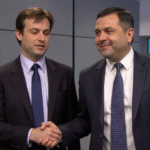Introduction
The Mexican Federal Procurator for Consumer Affairs (PROFECO) and the National Commission for the Protection and Defense of Users of Financial Services (CONDUSEF) have issued a warning to prevent becoming victims of fraud during the holiday season. Both organizations have detected a series of fraudulent practices in travel services and packages, which are increasingly prevalent in the digital environment, social media, and various websites.
Fraudulent Travel Agencies
PROFECO and CONDUSEF have identified “ghost travel agencies” as the perpetrators of these practices. These agencies advertise their services at below-average prices to stand out and grab attention. Once initial contact is established with interested individuals, these supposed agencies demand immediate payment to maintain the discounted price, thereby pressuring consumers and conditioning sales without allowing them to read and sign a contract.
- These fraudulent agencies fail to deliver booking and flight information once payment is secured, leaving consumers without any recourse.
- To avoid falling victim to such scams, it’s crucial to verify that travel service websites have a security lock to protect personal data.
Identity Theft
Both PROFECO and CONDUSEF caution the public about another risk: identity theft. This occurs when fraudsters share links or personal information through text messages, emails, or social media posts. These links lead to fake travel agency websites with attractive flight and accommodation prices, aiming to compromise individuals’ money and integrity.
Recommendations to Avoid Travel Package Frauds
To counteract these challenges, PROFECO advises those planning upcoming vacations to carefully examine internet links that start with “https” and contain no spelling errors. Be skeptical of unusual offers, limited-time discounts, or excessive discounts under pressure from supposed agencies. Avoid rushing into payments due to coercion.
Additionally, frequent use of credit cards during vacations increases the risk of banking fraud. Many travelers discover unfamiliar charges on their accounts upon returning home.






